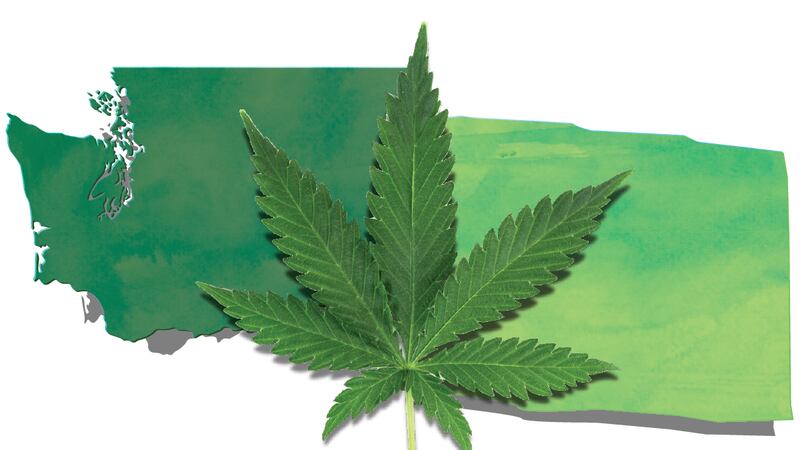Inside Oregon's recreational marijuana dispensaries, you'll find some of the finest flower, concentrates, edibles and topicals anywhere. Although the variety is hindered by the current testing backlog, the products available are light years beyond the likes of street merchandise 10 years ago.
Once you leave the shop, things aren't so great in Oregon. If you head up to Washington—or, better yet, over to Colorado—you have far more options for enjoying your high.
If the three states with established recreational cannabis programs were siblings, Colorado would be the driven eldest child. Colorado has been bold with its laws; it was the first state to truly legalize, and is currently developing the first-ever permits for areas where smoking in public is allowed. Washington is the mild-tempered middle sibling, following cautiously—lower limits on what you can buy and a more conservative approach to policy revisions. But both have more liberal laws than cautious, demure Oregon.
Related: Oregon Cannabis is Headed for a Tough Month Because of an Obscure Agency and Strict New Rules
The devil, they say, is in the details. As we enter a year in which more states are crafting their own rules for the post-prohibition world, we wanted to look at the specifics that have a profound effect on cannabis enthusiasts' actual experiences.
Labs
The messiness of Oregon's lab certification and holdups due to impossibly strict pesticide analysis have formed a cloud of doubt over our state's ability to remain a leader in the nation's cannabis revolution. But that's largely because of the high standards we set for ourselves while establishing basic medical cannabis testing standards back in October 2013. Although Washington and Colorado legalized before us, we had a broad network of labs at work by the time they opened their first rec shops. Colorado didn't require medical product to be tested by certified labs until June 2016, and is just now catching up to us with deeper pesticide analyses for rec and med product.
Hours
Oregon law permits marijuana shops to be open from 7 am to 10 pm, catering to early tokers. Though Denver set a citywide closing time of 7 pm, state laws in Colorado and Washington allow retail shops to operate from 8 am to midnight.
Edibles limits
Washington and Colorado have higher potency limits for edibles than Oregon. While we may buy up to 50 milligrams in one item, Washington allows 100 mg edibles, and in Colorado, non-residents can walk out with an edible containing up to 200 mg.
Public smoking
In Washington, cannabis is still illegal to consume in public places or anywhere people are employed. The state's not quite as strict as we are, though. If a hotel allows it, and if you're staying in a smoking-friendly room, you can toke away. The same goes for Colorado, and you can smoke on the balcony if it's out of public view. In Oregon, you have no such rights.
Besides the excitement around Colorado's Prop 300 that permits certain restaurants, bars and other social spaces to have bring-your-own-marijuana smoking patios, you can also legally smoke in a limo.
Right now, if you hire a private company that allows it, such as Mile High Limo Tours, you can blaze, dab and spliff it around Denver in the back of the limo.
Delivery
Thankfully, recent developments regarding marijuana deliveries in Portland prove that we aren't total prudes—neither Colorado nor Washington permit recreational marijuana deliveries, though plenty of posts of Craigslist say otherwise.
The Portland City Council made revisions to recreational marijuana licences mid-December, adding an entity called "marijuana retail couriers." These couriers would have limits to their hours of operation and regulations on the location of headquarters similar to those for dispensaries, but rules would even allow them to deliver to residences closer than 1,000 feet to schools. These couriers can only deliver products within city limits, and there will be a limit on the hours of operation. Commissioner Amanda Fritz, who proposed this ordinance, described this new license as a way for "microbusiness entrepreneurs" to survive the complicated and often expensive process toward Oregon Liquor Control Commission retail certification.
